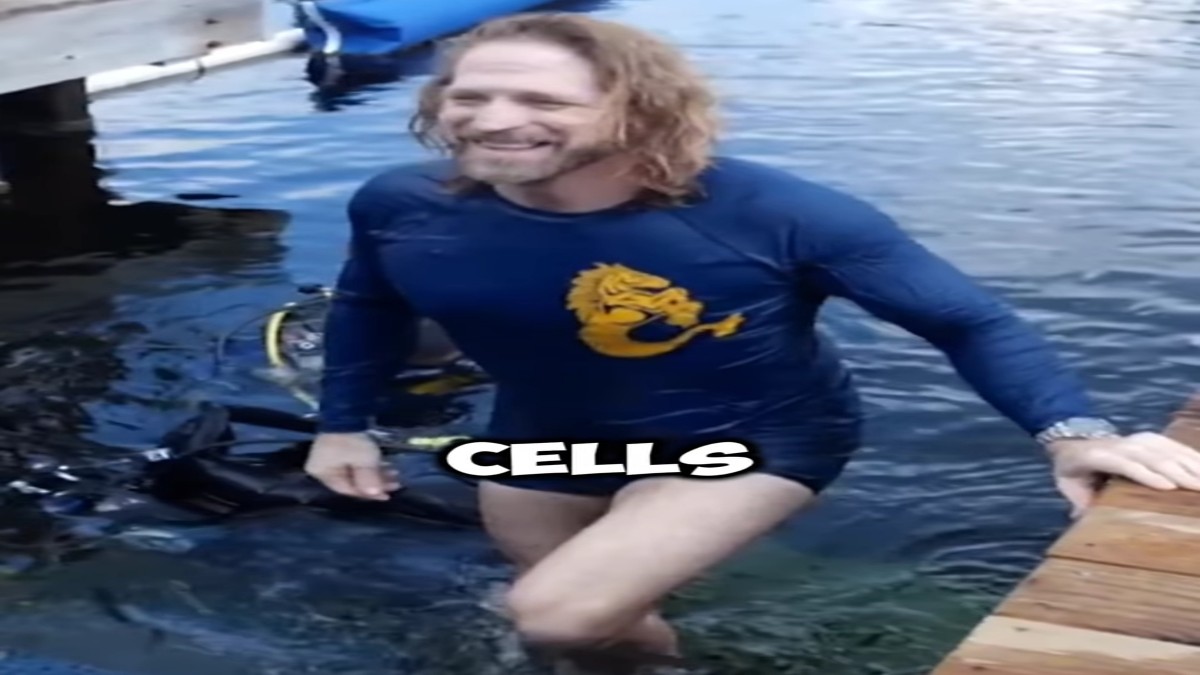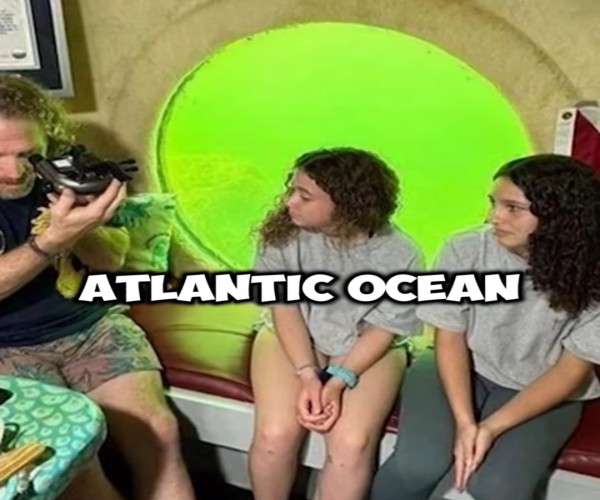
Deep Dive
Deep Dive, in an era where the quest for longevity and youth is relentless, scientific endeavors often push the boundaries of what we perceive as possible. One such groundbreaking experiment is the extraordinary underwater journey of Joseph Dituri, a retired naval officer known as “Dr. Deep Sea.”
Over 93 days spent in a pressurized pod 30 feet beneath the surface of the Atlantic Ocean, Dituri has not only set a new record for underwater habitation but also reported remarkable rejuvenation effects that have left the scientific community in awe. This article delves deep into Dituri’s journey, the scientific principles behind his age-defying experience, and the broader implications for medical science.
The Genesis of the Experiment
Joseph Dituri’s underwater adventure was not a whimsical endeavor but a carefully orchestrated scientific experiment. Dituri, who holds a doctorate in biomedical engineering, collaborated with various institutions, including the University of South Florida, to investigate the physiological and psychological effects of prolonged exposure to a high-pressure environment.
The primary objective was to explore the potential health benefits that such an environment could offer, particularly in terms of anti-aging and cellular regeneration.
Life Underwater: The Setup
The experiment took place in a specially designed underwater habitat located 30 feet below the Atlantic Ocean. This habitat, essentially a hyperbaric chamber, provided a controlled environment where Dituri could live and work while being closely monitored by a team of scientists and medical professionals.
The habitat was equipped with all necessary amenities, albeit in a compact space of just 100 square feet. It featured living quarters, a small laboratory, and communication systems to maintain contact with the surface.
The Daily Routine: Deep Dive
Dituri’s daily routine was meticulously planned to balance work, exercise, and rest. His schedule included scientific observations, exercise sessions, and periods of rest and relaxation.
Despite the confined space, Dituri managed to maintain physical fitness using exercise bands and bodyweight exercises. His diet was carefully controlled, focusing on nutrition that supported his overall health and the specific demands of living in a pressurized environment.
The Science of Hyperbaric Medicine
The crux of Dituri’s experiment lies in the principles of hyperbaric medicine, a field that studies the effects of high-pressure environments on the human body. Hyperbaric oxygen therapy (HBOT) is already an established treatment for various conditions, including decompression sickness, chronic wounds, and certain infections. The therapy involves breathing pure oxygen in a pressurized room or chamber, which increases the amount of oxygen in the blood and promotes healing.
Telomeres and Cellular Aging
One of the most striking results of Dituri’s experiment was the reported re-lengthening of his telomeres. Telomeres are the protective caps at the ends of chromosomes, and their length is often associated with cellular aging.
As cells divide, telomeres shorten, leading to aging and eventual cell death. The observation that Dituri’s telomeres had lengthened by 20% suggests a reversal of cellular aging processes, a finding that has profound implications for anti-aging research.
Increased Stem Cell Production: Deep Dive
Another significant finding was the dramatic increase in Dituri’s stem cell count. Stem cells play a crucial role in the body’s ability to repair and regenerate tissues. The high-pressure environment appeared to stimulate stem cell production, enhancing Dituri’s overall health and physical condition.
This finding aligns with previous studies suggesting that hyperbaric conditions can boost stem cell activity, potentially leading to improved recovery from injuries and a slowdown in the aging process.
Improved Metabolism and Physical Health: Deep Dive
Throughout the 93 days, Dituri experienced notable improvements in his metabolism and physical health. He reported a leaner physique, lower cholesterol levels, and a reduction in inflammatory markers. These changes are likely attributed to the combined effects of a controlled diet, regular exercise, and the high-pressure environment’s influence on metabolic processes. The hyperbaric conditions may enhance cellular respiration and nutrient absorption, contributing to these health benefits.
Psychological and Cognitive Benefits
Deep Dive, in addition to physical health improvements, Dituri also reported enhanced psychological well-being and cognitive function. The underwater environment, while isolated, provided a unique setting for introspection and mental clarity. The increased oxygen levels and reduced environmental stressors may have contributed to better sleep quality and overall mental health. Dituri’s experience underscores the potential for hyperbaric environments to support not just physical but also psychological resilience.
The Broader Implications for Medical Science
Deep Dive, Dituri’s underwater experiment opens up exciting possibilities for medical science, particularly in the fields of anti-aging and regenerative medicine. The observed benefits of living in a high-pressure environment could pave the way for new therapeutic approaches. For instance, hyperbaric treatments could become a viable option for enhancing cellular health and longevity, potentially offering a non-invasive method to combat aging and age-related diseases.
Future Research and Applications: Deep Dive
The success of Dituri’s experiment highlights the need for further research into the effects of hyperbaric environments on human health. Future studies could explore the long-term implications of such treatments and identify optimal conditions for maximizing health benefits.
There is also potential for developing specialized hyperbaric facilities where individuals could undergo treatments for various health conditions. These facilities could offer a controlled environment to study and apply the principles of hyperbaric medicine on a larger scale.
Ethical and Practical Considerations
While the results of Dituri’s experiment are promising, there are ethical and practical considerations to address. Prolonged exposure to high-pressure environments is not without risks, and careful monitoring is essential to ensure safety. Additionally, the accessibility and affordability of hyperbaric treatments need to be considered, particularly if they are to become widely available as anti-aging therapies. Researchers and medical professionals must work together to develop guidelines and protocols that balance efficacy with safety and accessibility.

Conclusion
Joseph Dituri’s 93-day underwater experiment represents a remarkable achievement in the quest for understanding and harnessing the benefits of high-pressure environments on human health. The findings suggest that such environments can significantly improve physical and psychological well-being, potentially reversing some aspects of the aging process. As research continues, the insights gained from Dituri’s journey could revolutionize the fields of anti-aging and regenerative medicine, offering new hope for healthier, longer lives.
Acknowledgments
The success of this experiment was made possible through the collaboration of various institutions, scientists, and support teams. Special thanks to the University of South Florida and other contributing organizations for their invaluable support and resources.
References
- Ladbible. (2023). Man who spent 93 days at bottom of the Atlantic says he’s now ’10 years younger’. Retrieved from Ladbible.
- Good News Network. (2023). Man’s Biological Clock Set Back 10 Years After 93 Days Living Under the Ocean in a Research Station. Retrieved from Good News Network.
- Mirror. (2024). Man became ’10 years younger’ after spending 93 days at bottom of the Atlantic. Retrieved from Mirror.
This comprehensive exploration of Dituri’s journey and its implications underscores the profound potential of hyperbaric medicine and the continuous need for innovative approaches to health and longevity.
Retired naval officer Joseph Dituri spent 93 days submerged in the Atlantic ocean and came out 10 years younger.
Dituri emerged from his 100-square-foot pod with extraordinary results.
Not only did he shatter the previous world record for underwater habitation, which was 73 days, but he had also turned back the ageing clock, emerging from his pod 10 years younger, The Mirror reported.
After returning to dry land, medical assessments revealed that Dituri’s telomeres, the DNA caps at the ends of chromosomes that typically shrink with age, were 20 per cent longer than before his dive. His stem cell count had also skyrocketed, and his overall health metrics had undergone a remarkable transformation.
Dituri also experienced a significant improvement in sleep quality, with 60 to 66 percent of his nights now spent in deep REM sleep. His cholesterol levels plummeted by 72 points, and his inflammatory markers had been slashed in half. These transformations were attributed to the underwater pressure, which is known to have numerous positive effects on the body.




